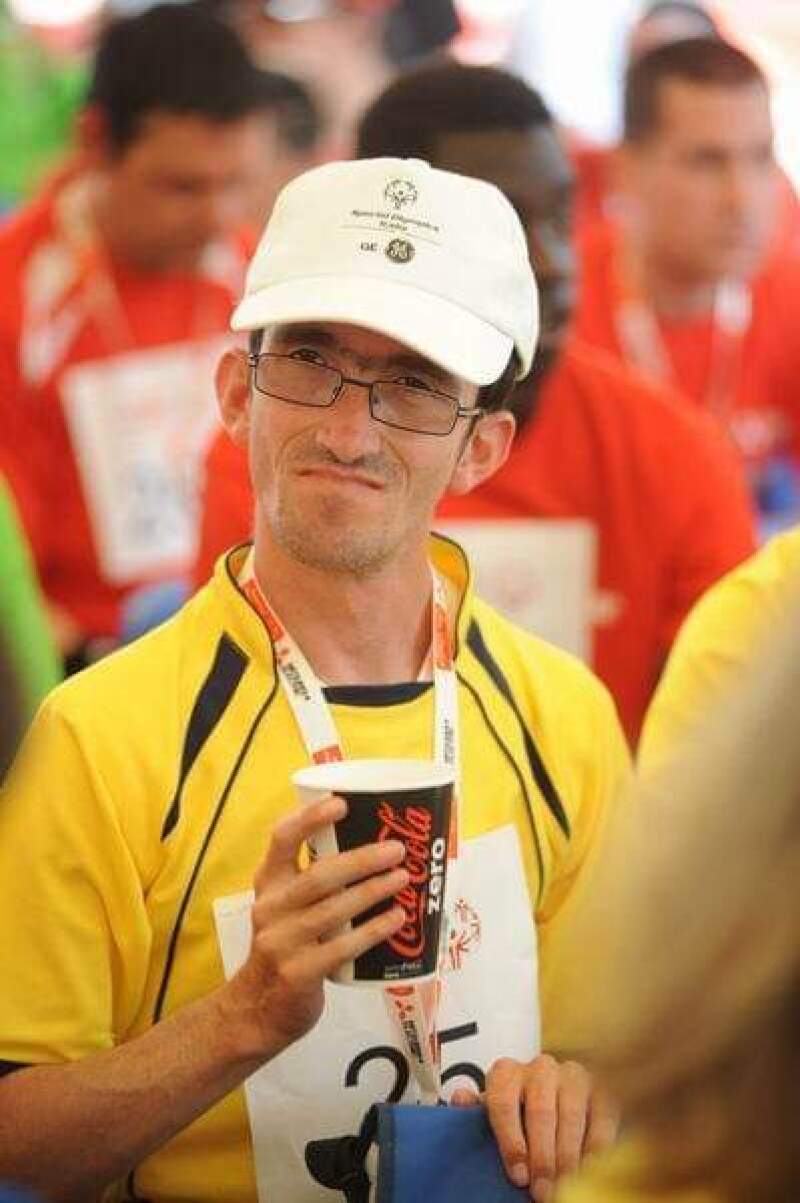
For over a year now, project teams in Special Olympics Belgium and Special Olympics Italy—led by SO Europe Foundation and supported by Think Beyond—have been carefully developing, testing and tweaking a Sport Sustainability Framework (SSF). The ultimate aim is to produce a comprehensive document which will offer best practices and recommendations that any and all Special Olympics teams across the world can use to improve the sustainability of sports events.
As the team enters the home strait—a Special Champions League tournament on 5 and 6 October in Belgium serves as the final official test event—we caught up with them to understand their challenges, progress so far and hopes for the final lap of the project.
Special Olympics events are so often organized in conjunction with an array of partners who may all be at different stages of their sustainability journey so there can be a challenge aligning aims. Audrey Desclée, Project Coordinator with Special Olympics Belgium notes, “We have so many partners and we often rely heavily on them for support.”
These partners can include the towns that Special Olympics Belgium organises its National Games in cooperation with. Frank De Vos, Project Coordinator, says, “If we can convince the town to be sustainable then we can move forward. Fortunately, this is the direction that most towns are moving in. They want to prove that they are sustainable and, in that case, it can really facilitate the partnership if we can say from the first moment that we also have sustainability objectives.”
For Giorgio Scarnecchia, Project Manager with Special Olympics Italy, the key is also to align with partners. He says, “It’s important to set common standards for everyone and find best practices that can be adopted by everyone at every event. It’s crucial to get stakeholders and sponsors involved and finally to create a legacy.”

Another area that Special Olympics Italy have been focusing on is the use of sustainably sourced, local food at events. Sara Capone, Project Manager with Special Olympics Italy, says with a smile, “We are Italian, and we care a lot about food! We always choose local suppliers for food.” The team is also in discussions with suppliers to see which are using recycled material and is making decisions on the purchase of merchandise and other equipment with this criterion in mind.
Special Olympics Belgium too has been reflecting on the merchandise, kits and equipment that it uses with a focus on reuse and reduction. They have requested that key volunteers keep their uniforms for three years rather than producing new kits which will only be worn for a few days each year. They are also improving their digital visibility offer for sponsors, which enables them to reduce the new branding material to be produced year after year.

The project team have been looking into the individual steps that they can take in these areas and many more but the key, they believe, is to take action. Embracing sustainability is not an option according to this team. Colin Kenny, Senior Manager of Project and Grants at SO Europe Foundation, notes, “As an organisation, we need to take it seriously. We run so many international, national and local events that we need a strategy to lessen our carbon footprint in line of what is being done by other sports organisations in this space. We need to think ahead and be progressive.”
Ellen Salter, Sustainability Director at Think Beyond who have been supporting the project team, notes that the development of the project framework is exactly the direction that sports organisations like Special Olympics should be moving in. She says, “It’s been great to work with Special Olympics and learn more about the work of the organisation and the environmental sustainability efforts underway. Across sport, a lack of common guidance can often create hesitancy around the development and sharing of sustainability ideas, which is a challenge. This Special Olympics project facilitates shared knowledge and learning to drive change. We need a collective understanding that sustainability is not something to be perfected, and we should be transparent, collaborative and learn from each other.”
It is hoped that Special Olympics teams across the world will have the opportunity to learn from this project’s Sport Sustainability Framework (SSF) which will be produced and disseminated in November 2024.
Funded by the European Union. Views and opinions expressed are however those of the author(s) only and do not necessarily reflect those of the European Union or the European Education and Culture Executive Agency (EACEA). Neither the European Union nor EACEA can be held responsible for them.









